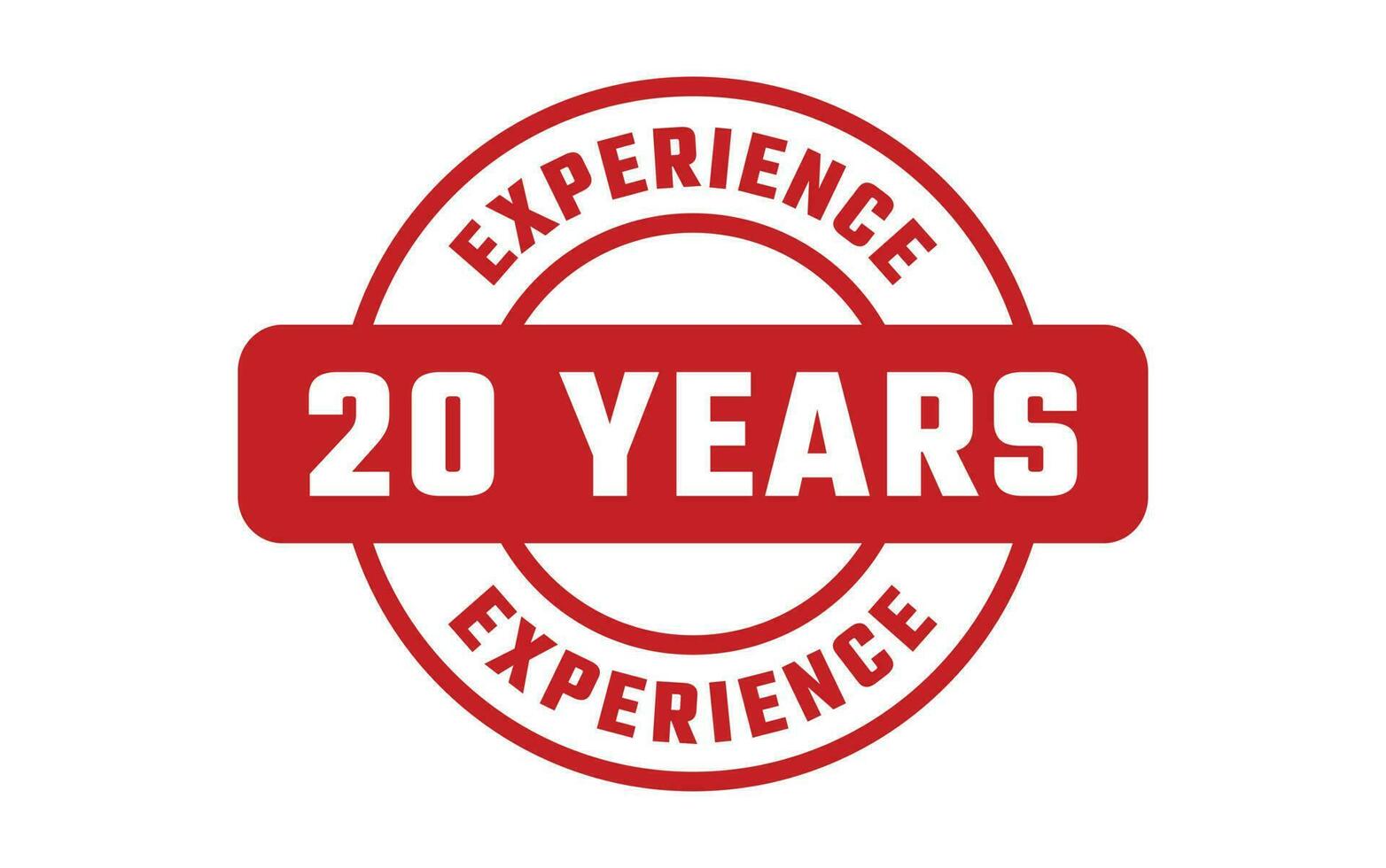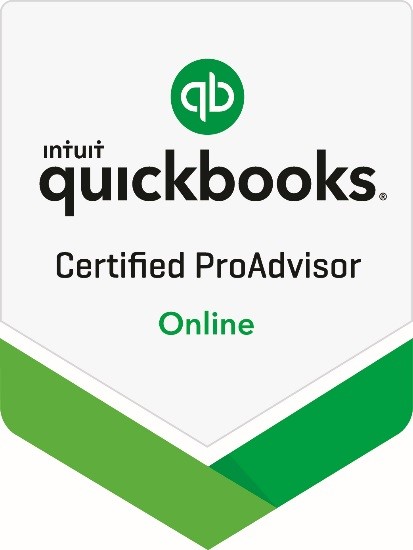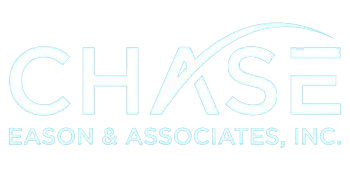Contact Us
Get in Touch
Have questions or need assistance? Contact us today to discuss your financial goals.
Subscribe to our newsletter to receive news, updates, and valuable tips.
Frequently Asked Questions
Credit Cards: Frequently Asked Questions
Which are the best credit cards?
Finding the best credit card is mostly a matter of comparison shopping, but before you accept a credit card offer, make sure you understand the card's credit terms. For instance, what is the annual percentage rate? Is there a grace period? How much is the annual fee? Once you have the answers to these and other answers, then you can compare several cards at once and figure out which card meets your particular needs and which one offers you a better deal.
Figuring out which card is best for you is not always obvious because it really depends on how you plan to use the card. For example, if you plan to pay your bills in full each month, fees and the length of the grace period may be more important than the periodic and annual percentage rate. If you anticipate using your credit cards to pay for purchases over a period of time, then the annual percentage rate (APR) and the balance computation method are important terms to consider. In either case, keep in mind that your costs will be affected by whether or not there is a grace period.
When it comes to shopping around for a credit card there are a few terms you should know and understand. These include:
Annual percentage rate. The annual percentage rate or APR is a measure of the cost of credit expressed as a yearly rate.
Periodic rate. The card issuer also must disclose the periodic rate applied to your outstanding account balance to figure the finance charge for each billing period.
Variable rate. If the credit card you are considering has a variable rate feature, the card issuer must tell you that the rate may vary and how the rate is determined. You also must be told how much and how often your rate may change.
Grace period. The grace period allows you to avoid the finance charge by paying your current balance in full before the due date shown on your statement. Knowing whether a credit card plan gives you a grace period is especially important if you plan to pay your account in full each month. And, thanks to the Credit CARD Act of 2009, if the credit card has a grace period finance charges for the month cannot be assessed unless you receive the monthly statement 21 days before the financing charges begin.
If there is no grace period, the card issuer will impose a finance charge from the date you use your credit card or from the date each transaction is posted to your account.
Annual membership. Most credit card issuers used to charge annual membership fees, but this is no longer the case. There are plenty of cards out there with no annual or other participation fees. For those card issuers that do impose annual fees, they typically range from $18 to $95. The annual fee for an American Express Platinum Card is $450.
Other costs. A credit card also may involve other types of costs such as balance transfer fees and fees for cash advances, or late fees.
If someone steals my credit card, how much am I liable for?
Under the Truth in Lending Act, if your credit card is used without your authorization, you are only held liable for up to $50 per card. If you report the loss before the card is used, federal law says the card issuer cannot hold you responsible for any unauthorized charges.
If a thief uses your card before you report it missing, the most you will owe for unauthorized charges is $50. This is true even if a thief is able to use your credit card at an automated teller machine (ATM) to access your credit card account.
To minimize your liability, report the loss of your card as soon as possible. Most companies have toll-free numbers printed on their statements and 24-hour service to report lost or stolen cards.
Are rebate and rewards credit cards a good deal?
The use of rebate and rewards cards has grown rapidly. Costco for example sponsors a credit card (Costco Cash Rebate card) that give rebates on the cost of merchandise you buy with the card once you spend a certain amount. You usually get larger rebates on the sponsoring company's products and lower rebates on other card charges. Credit card solicitations promise cash, frequent-flier miles or points that will buy everything from hotel rooms to gas.
You'll get a good deal from a rebate card if you spend a lot, and if you pay your bill in full each month. If you carry a balance on the card, what you gain in rebates you will lose in the excessive interest charged by credit cards.
What is the difference between the average daily balance, adjusted balance and previous balance?
Average Daily Balance (including or excluding new purchases). The average daily balance method gives you credit for your payment from the day the card issuer receives it. To compute the balance due, the card issuer totals the beginning balance for each day in the billing period and deducts any payments credited to your account that day. New purchases may or may not be added to the balance, depending on the plan, but cash advances typically are added. The resulting daily balances are added up for the billing cycle and the total is then divided by the number of days in the billing period to arrive at the "average daily balance." This is the most common method used by credit card issuers.
Adjusted Balance. This balance is computed by subtracting the payments you made and any credits you received during the present billing period from the balance you owed at the end of the previous billing period. New purchases that you made during the billing period are not included. Under the adjusted balance method, you have until the end of the billing cycle to pay part of your balance and you avoid the interest charges on that portion. Some creditors exclude prior, unpaid finance charges from the previous balance. The adjusted balance method usually is the most advantageous to card users.
Previous Balance. As the name suggests, this balance is simply the amount you owed at the end of the previous billing period. Payments, credits, or new purchases made during the current billing period are not taken into account. Some creditors also exclude unpaid finance charges in computing this balance.
What can I do if I am dissatisfied with a credit card purchase?
If you have a problem with merchandise or services that you charged to a credit card, and you have made a good faith effort to work out the problem with the seller, you have the right to withhold from the card issuer payment for the merchandise or services. Check with your credit card company regarding their policies.
If you do not achieve satisfaction through the seller or credit card company, you can file a small claims court action-an informal legal proceeding that can be used to settle disputes. Check your local telephone book under your municipal, county, or state government headings for small claims court listings.
In addition, you have the following rights:
You have the right to have mail and phone order purchases shipped when promised, or to cancel for a full and prompt refund. If no shipping date is stated, your right to cancel begins 30 days after your order and payment are received by the merchant. If you cancel, the seller has one billing cycle to tell the card issuer to credit your account.
There are two exceptions to the 30-day shipment rule: (1) If a company doesn't promise a shipping time, and you are applying for credit to pay for your purchase, the company has 50 days after receiving your order to ship. (2) Spaced deliveries, such as magazine subscriptions (except for the first shipment); items that continue until you cancel (e.g. book or record clubs, etc.); C.O.D. (cash on delivery) orders; services; and seeds or growing plants are not covered.
You have the right to a full refund--because of shipping delay--within seven working days (or one billing cycle) after the seller receives your request to cancel.
You may refuse a delivery of damaged or spoiled items.
If there is obvious damage to a package you receive in the mail, and if you decide not to accept the package, write "REFUSED" on the wrapper (at time of delivery) and return it unopened to the seller. No new postage is needed, unless the package came by insured, registered, certified or C.O.D. mail and you signed for it.
If you are ordering something to be delivered by C.O.D., make your check out to the seller, not the post office. That way, you may contact your bank and stop the check if there is an immediate problem with merchandise.
When you return merchandise or pay more than you owe, you have the option of keeping the credit balance on your account or requesting a refund (if the amount exceeds $1.00). To obtain a refund, write the card issuer. The card issuer must send you the refund within seven business days of receiving your request.
What can I do if there is a mistake on my credit card bill?
The Fair Credit Billing Act provides specific rules that the card issuer must follow for promptly correcting billing errors. The card issuer will give you a statement describing these rules when you open the credit card account and, after that, at least once a year. Many card issuers print a summary of your rights on each bill they send you.
Billing errors include:
a charge for something you didn't buy
a purchase by someone not authorized to use your card
an amount on your bill that is different from the actual amount you paid
a charge for something that you did not accept on delivery
a charge for something that was not delivered according to the agreement arithmetic errors
payments not credited to your account
When you find an error you must notify the card issuer in writing within 60 days after the first bill containing the error was mailed to you. Some companies may accept e-mail; others will require that you put your dispute in writing. Be sure to include your name and account number, a description of the billing error and the date and amount of the charge you dispute.
The card issuer, in turn, must look into the problem and either correct the error or explain to you why the bill is correct. If there is an error, you will not have to pay interest charges on the disputed amount. Your account must be corrected. If there is no error, the credit card company must send you an explanation and a statement of what you owe.
During the period that the card issuer is investigating the error, you do not have to pay the amount in question. For further information visit Consumer Information.
How can I get the most benefit from my credit cards?
Here are some suggestions for the use of credit cards:
Pay bills promptly to keep finance charges as low as possible.
Keep copies of sales slips and promptly compare charges when your bills arrive
Keep a list of your credit card account numbers and the telephone numbers of each card issuer in a safe place in case your cards are lost or stolen.
Protect your credit cards and account numbers to prevent unauthorized use.
Draw a line through blank spaces above the total when you sign receipts. Rip up or retain carbons.
Deal only with reliable firms. Check with your local consumer protection agency or the Better Business Bureau (BBB) closest to where the business is located. Study the advertising offer carefully and always ask the company about its refund and exchange policies as well as product warranties offered.
Pay by money order, check, charge or credit card so you have a record of your purchase.
Never send cash. Keep the ad you responded to and a copy of the order form. If there is no order form, make your own notes with the company's name, address, phone number, date, amount, the item you purchased, and any delivery date that may have been promised.
Never give out your credit, debit, charge card or bank account numbers unless you've checked out the company or have done business with it before.
What restrictions and limitations can a merchant impose before accepting my credit card?
Some merchant practices violate your privacy and expose you to potential credit fraud, and are therefore illegal in many states.
To protect your privacy, say "no" to a merchant who engages in these impermissible credit card practices:
Writes your credit card number on your personal check
Writes your personal information on a bank credit card sales slip
Imposes a minimum sales amount for credit card purchases
Charges extra for payment by credit card.
Giving a discount for cash payments is allowed.
How can I stop junk mail or telemarketing calls?
You have the right to tell commercial telephone and direct mail marketers to stop calling you. If you wish to have your name removed from telephone lists of marketing companies contact the federal Do Not Call Registry:
National Do Not Call Registry
Federal Trade Commission
600 Pennsylvania Avenue, NW
Washington, DC 20580
website: www.donotcall.gov
Consumers who do not wish to receive promotional mail at home should contact:
Direct Marketing Association
1120 Avenue of the Americas
NY, NY New York, NY 10036-6700
Tel. 212.768.7277
website: www.DMAChoice.org
If companies you now do business with also removes your name, you can contact them directly to have your name reinstated. If the marketer violates the do-not-call list, the first step is to file a complaint with the FTC (Federal Trade Commission). You can also file a lawsuit against the telemarketer, but only if there is a "pattern and practice" of violations. You also have to have suffered actual damages of more than $50,000 and be able to prove both of these things.
If you receive unordered merchandise in the mail, consider it a gift and don't feel pressure to pay for it.
Credit Reports: Frequently Asked Questions
How can I check my credit report?
Mistakes on credit reports occur more frequently than you might think. And whether those mistakes are there because they're caused by stolen or unauthorized use of credit cards, other individuals with the same name, or a creditor reporting something in the wrong way, it's important to check your credit report on a regular basis.
By law, and at your request, you are entitled to one free credit report from each of the three major credit bureaus listed below once every 12 months. To check your report or obtain a copy do not contact the three nationwide consumer reporting companies individually. Instead, visit www.annualcreditreport.com, call 1-877-322-8228, or complete the Annual Credit Report Request Form and mail it to: Annual Credit Report Request Service, P.O. Box 105281, Atlanta, GA 30348-5281. The form is available at Free Credit Reports on the Federal Trade Commission website (ftc.gov).
AnnualCreditReport.com is a centralized service for consumers to request free annual credit reports. You may order your reports from each of the three nationwide consumer reporting companies at the same time, or you can order one report at a time from each of the three companies.
In addition, federal law states that you're entitled to a free report if a company takes adverse action against you, such as denying your application for credit, insurance, or employment, but you must submit a request for your report within 60 days of receiving notice of the action. The notice will give you the name, address, and phone number of the consumer reporting company.
You're also entitled to one free report a year if you're unemployed and plan to look for a job within 60 days; if you're on welfare; or if your report is inaccurate because of fraud, including identity theft. Otherwise, a consumer reporting company may charge you up to $11.00 for another copy of your report within a 12-month period. Residents of California, Colorado, Connecticut, Georgia, Maine, Maryland, Massachusetts, Minnesota, Montana, New Jersey, Puerto Rico, Vermont, or the US Virgin Islands, may be entitled to a free or reduced price personal credit report from each of the three major credit bureaus, which are listed below:
Experian Credit Bureau: 888-397-3742
Equifax Credit Bureau: 866-349-5191
TransUnion: 877-322-8228
Financial Trouble: Frequently Asked Questions
What if there is an error on my credit report?
By law (under the Fair Credit Reporting Act) you have the right to correct inaccurate information in your credit file. You must dispute your report directly to the credit reporting agency.
Notify the credit reporting company, in writing, what information you think is inaccurate. Include copies (do not send originals) of documents that support your position. Provide your complete name and address and clearly identify each item in your report you dispute and state the facts and explain why you dispute the information. You must also request that the item is removed or corrected.
Credit reporting companies must investigate the items in question — usually within 30 days — unless they consider your dispute frivolous. They also must forward all the relevant data you provide about the inaccuracy to the organization that provided the information. After the information provider receives notice of a dispute from the credit reporting company, it must investigate, review the relevant information, and report the results back to the credit reporting company. If the information provider finds the disputed information is inaccurate, it must notify all three nationwide credit reporting companies so they can correct the information in your file.
Send your dispute by certified mail, return receipt requested, and keep copies of your dispute letter and enclosures. By doing so, you can document what the credit reporting agency received.
When the investigation is complete, the credit reporting company must give you the results in writing and a free copy of your report if the dispute results in a change. This free report does not count as your annual free report. If an item is changed or deleted, the credit reporting company cannot put the disputed information back in your file unless the information provider verifies that it is accurate and complete. The credit reporting company also must send you written notice that includes the name, address, and phone number of the information provider.
If you request it, the credit reporting company must send notices of any corrections to anyone who received your report in the past six months. You can have a corrected copy of your report sent to anyone who received a copy during the past two years for employment purposes.
If an investigation doesn't resolve your dispute with the credit reporting company, you can ask that a statement of the dispute be included in your file and in future reports. You also can ask the credit reporting company to provide your statement to anyone who received a copy of your report in the recent past. You can expect to pay a fee for this service.
While the investigation is going on, be sure to tell the creditor or another information provider, in writing, that you dispute an item. Be sure to include copies (NOT originals) of documents that support your position. Many providers specify an address for disputes. If the provider reports the item to a credit reporting company, it must include a notice of your dispute. And if you are correct - that is, if the information is found to be inaccurate - the information provider may not report it again.
If you are divorced and suffering the consequences of a credit rating damaged during the marriage, you may be able to obtain relief if the bad credit rating was your spouse's fault and you can prove it. According to the Equal Credit Opportunity Act, a lender must consider any evidence you have that shows your spouse---not you---was the irresponsible one.
How can I build a credit history so that I can establish credit?
It may take some time to establish your first credit account if you have no reported credit history. This problem affects mainly (1) young people, (2) older people who have never used credit, and (3) divorced or widowed women who shared credit accounts reported only in the husband's name.
Here are some steps you can take:
Check with a credit bureau to find out what is in your credit report.
If you have had credit before under a different name or in a different location and it is not reported in your file, ask the credit bureau to include it. Although credit bureaus are not required to add new accounts to your file, many will do so for a fee.
If you currently share a credit account with your spouse, ask the creditor to report it under both names
When contacting your creditor or credit bureau, do so in writing and include relevant information, such as account numbers, to speed the process. As with all important business communications, keep a copy of what you send.
Build a credit history by applying for credit with a local business, such as a department store, or borrow a small amount from your credit union or the bank where you have checking and savings accounts. A local bank or department store may approve your credit application even if you do not meet the standards of larger creditors.
If you are rejected for credit, find out why. There may be reasons other than lack of credit history. Your income may not meet the creditor's minimum requirement or you may not have worked at your current job long enough.
Wait at least six months before making each new application. Credit bureaus record each inquiry about you. Some creditors may deny your application based on your having too many credit inquiries.
If you still cannot get credit, ask someone with an established credit history to act as your co-signer. Then, once you have repaid the debt, try again to get credit on your own. Alternatively, you may wish to consider a secured credit card.
Who can see my credit file?
The Fair Credit Reporting Act allows access to your credit file only by the following: those authorized in writing by you, creditors to whom you are applying for credit, insurers, potential employers, and those who have a "legitimate business purpose related to a business transaction involving you" including, landlords, a state or local child support enforcement agency, insurance companies, employers and potential employers (but only with your consent), companies with which you have a credit account for account monitoring purposes, those considering your application for a government license or benefit if the agency is required to consider your financial status.
In addition, government agencies can obtain identifying information about you. This is limited to your name, current and former addresses, and current and former places of employment.
Every time someone requests a copy of your credit report, it is noted as an "inquiry" on your credit file. You are entitled to know who has requested your credit file within the past six months (or two years if for employment purposes). This information is provided when you order a copy of your credit report.
In addition to checking on the information in your report, review who has seen your file. Credit bureaus must establish procedures to keep anyone without a legitimate business purpose from obtaining your report, but unauthorized access to credit files does sometimes occur.
How can I decipher my credit report?
Your credit report is divided into four sections: identifying information, credit history, public records, and inquiries.
Identifying information is information used to identify you such as your maiden and married name(s), social security number, current and previous addresses, date of birth, telephone numbers, driver's license numbers, employer, and spouse's name.
Credit history is made up of your accounts, which are sometimes called tradelines. There are two types of credit accounts, revolving, which includes items such as credit cards, and installment, which includes car loans and mortgages. Each account listed includes the name of the creditor and the account number, when you opened your account, what kind of account it is, the payment amount, the status of the account (open, closed, paid, active), the balance if it's a loan, and how well you have paid the account (never late, 30 days late, etc.).
Public records lists financially related data such as bankruptcies, judgments and tax liens that would adversely affect your credit.
The last section, inquiries, is a list of everyone who has asked to see your credit report--everyone from credit card companies you applied to for a new card or banks for a new car loan and creditors interested in pre-qualifying you for a credit card.
It is vital that you understand every piece of information on your credit report in order that you be able to identify possible errors or omissions.
Read your report carefully, making a note of anything you do not understand. The credit bureau is required by law to provide trained personnel to explain it to you. If accounts are identified by code number, or if there is a creditor listed on the report that you do not recognize, ask the credit bureau to supply you with the name and location of the creditor so you can ascertain if you do indeed hold an account with that creditor.
In addition to the account information, credit reports often contain symbols and codes that look like "Greek" to the average consumer. Fortunately, every credit bureau report also includes a key explaining each code.
Equal Credit Opportunity Act (ECOA) Codes
The Equal Credit Opportunity Act (ECOA) requires creditors who report information about accounts to report it in the names of all people with a relationship to the account, including co-signers or authorized users. To help lenders identify your legal liability on all your credit accounts, credit bureaus add a code to each account, termed the ECOA code. Credit bureaus may list the ECOA codes differently, but the basic categories are as follows:
Individual. You alone are legally responsible. This designation gives you a strong credit reference, assuming a good history. You alone are legally responsible. This designation gives you a strong credit reference, assuming a good history. You alone are legally responsible. This designation gives you a strong credit reference, assuming a good history.
Joint. You and someone else -- often a spouse - are both legally liable. A joint account is equal to an individual account for building your credit history. You and someone else -- often a spouse - are both legally liable. A joint account is equal to an individual account for building your credit history. You and someone else -- often a spouse - are both legally liable. A joint account is equal to an individual account for building your credit history.
Co-signer. You signed loan documents for someone else, to help them qualify for a loan. Also referred to as "On Behalf of" (secured credit for another individual other than spouse).
Co-signer, primarily liable: You took out an account for yourself, but someone else co-signed for the loan to ensure payment. Also known as "Maker" (account for which subject is liable but a co-maker is liable if maker defaults.)
Authorized user. You can use the account, and may have a card in your name, but you did not sign the application and are not legally responsible. Because you have no legal obligation, this designation does not help you get your own credit history. You can use the account, and may have a card in your name, but you did not sign the application and are not legally responsible. Because you have no legal obligation, this designation does not help you get your own credit history. You can use the account, and may have a card in your name, but you did not sign the application and are not legally responsible. Because you have no legal obligation, this designation does not help you get your own credit history. Officially referred to as "Business/Commercial" and identifies that the company reported in the name fields is contractually liable for the account.
Undesignated. No status was reported by the creditor reporting the account information and is not used on accounts opened after 06/1977.
Credit Rating: Frequently Asked Questions
How will a divorce or separation affect my credit?
Here are some tips for handling the credit aspects of divorce, both in the planning stages and afterward.
Cancel All Joint Accounts. First, it is important to cancel all joint accounts immediately once you know you are going to obtain a divorce.
Creditors have the right to seek payment from either party on a joint credit card or other credit account, no matter which party actually incurred the bill. If you allow your name to remain on joint accounts with your ex-spouse, you are also responsible for the bills.
Some credit contracts require that you immediately pay the outstanding balance in full if you close an account. If so, try to get the creditor to have the balance transferred to separate accounts.
If Your Spouse's Poor Credit Affects You. If your spouse's poor credit hurts your credit record, you may be able to separate yourself from the spouse's information on your credit report. The Equal Credit Opportunity Act requires a creditor to take into account any information showing that the credit history being considered does not reflect your own. If for instance, you can show that accounts you shared with your spouse were opened by him or her before your marriage and that he or she paid the bills, you may be able to convince the creditor that the harmful information relates to your spouse's credit record, not yours.
In practice, it is difficult to prove that the credit history under consideration doesn't reflect your own, and you may have to be persistent.
Women: Maintain Your Own Credit-Before You Need It. If a woman divorces, and changes her name on an account, lenders may review her application or credit file to see whether her qualifications alone meet their credit standards. They may ask her to reapply, although the account remains open.
Maintaining credit in your own name avoids this inconvenience. It can also make it easier to preserve your own, separate, credit history. Further, should you need credit in an emergency, it will be available.
Do not use only your spouse's name, for example, "Mrs. John Wilson" for credit purposes.
Check your credit report if you haven't done so recently. Make sure the accounts you share are being reported in your name as well as your spouse's. If not, and you want to use your spouse's credit history to build your own, write to the creditor and request the account be reported in both names.
Find out if there is any inaccurate or incomplete information in your file. If so, write to the credit bureau and ask them to correct it. The credit bureau must confirm the data within a reasonable time period, and let you know when they have corrected the mistake.
If you used your spouse's accounts, but never co-signed for them, ask to be added on as jointly liable for some of the major credit cards. Once you have several accounts listed as references on your credit record, apply for a department store card, or even a Visa or MasterCard, in your own name.
If you held accounts jointly and they were opened before 1977 (in which case they may have been reported only in your husband's name), point them out and tell the creditor to consider them as your credit history also. The creditor cannot require your spouse's or former spouse's signature to access his credit file if you are using his information to qualify for credit.
A secured credit card is a fairly quick, easy way to get a major credit card if you do not have a credit history.
What factors affect my credit rating?
Your credit rating is affected by a number of different factors, some obvious and others few consumers are aware of. The following factors are discussed below:
Whether you have a credit card or use another person's credit card
Whether you have a bank checking or savings account
Where you live
Your age
Your debt-income ratio
Whether you have declared bankruptcy or have had "charge-offs" to your account
Whether you are delinquent in any child support payments
Whether you have "too much" credit available
Does having a credit card or using another person's credit card improve my credit rating?
One of the best things you can have on a credit report is a bank credit card-- such as a Visa, MasterCard or Discover card -that has been paid on time over a specified period in the past. In a credit scoring system, a good bank card reference usually carries more weight than an American Express card or a department store card.
If you are an authorized user (someone who has permission to use a credit card, but is not legally liable for the bills) on someone else's account, the payment history will likely be reported in your credit file, but you won't be able to rely on it to help you build your own credit rating. Usually, it will neither help you nor hurt you when you apply for a loan.
Does having a checking or savings account improve my credit rating?
A checking or savings account will usually enhance your credit rating. Some banks give you extra points in applying for their credit card if you have a checking or savings account with them. In fact, some banks also give discounts on loan rates when you hold other accounts with them.
Is my credit rating affected by where I live?
Many creditors give a higher score to those who have lived at the same address for at least two years. Others give extra points just for living in the same area for two years or more.
Creditors may take into account your geographic location in scoring your length of time at one address. If you live in a city, where people move more often, the length of time at your address will probably count less than if you live in the country.
If your address is a post office box, you may find yourself turned down for credit. To fight fraud, some creditors screen out applicants whose addresses indicate commercial offices, mail drops or prisons.
Since post office boxes or rural delivery boxes are commonplace in rural areas, a lender may issue a card to that address while rejecting applicants with a P.O. Box in a large city.
People who own their homes usually earn a higher score than renters.
Does my age affect my credit rating?
If a lender's credit experience shows that people in a certain age group have a better record of paying their bills than people of other ages, that lender may, legally, give a higher score to the better-paying age group.
However, the Equal Credit Opportunity Act (ECOA), a federal law intended to prevent discrimination in lending, does not allow lenders to discriminate against people age 62 or over. The ECOA requires creditors using a scoring system to give those aged 62 and older an age-factor score at least as high as the best score given to anyone under age 62.
How important is my debt-income ratio in determining my credit-worthiness?
Some creditors look at your "debt/income ratio" to determine whether you qualify for credit and how much credit you qualify for.
To find your debt/income ratio, total up your monthly payments on all bills. Then, divide these payments by your monthly gross income (before tax). This is your debt/income ratio.
If it's less than 28 percent, you should have no trouble getting a loan (and can consider yourself successful at managing your debt and maintaining a good credit rating). If it falls between 28 percent and 35 percent, you have what's considered high debt, and you may find it difficult to obtain some loans. If your debt/income ratio is 35 percent or more, you will probably not be able to get additional credit. More importantly, you are potentially in financial jeopardy.
Keep in mind that these are general guidelines. Some large card issuers will accept debt ratios as high as 40-45 percent. Others compare your net (after-tax) income to your debts to determine your debt ratio.
In determining your debt/income ratio, do not include payments for your mortgage, utility bills, doctor bills or other items that do not appear on your credit report: The creditor will not look at these.
If you should incur unexpected expenses, get ill, lose your job, or get divorced, you could find yourself unable to meet your obligations. Consider seeking credit counseling through a local non-profit consumer credit counseling service.
Will bankruptcies or "charge-offs" affect my credit rating?
Most lenders (but not all) will automatically reject you if your application or credit file indicates a bankruptcy. Both types of bankruptcy - Chapter 13 (the wage-earner's plan under which all debts are eventually repaid) and Chapter 7 (straight bankruptcy) - remain in your credit files for ten years. Few creditors draw any distinction between the two types, so you don't get any "credit" for having repaid your bills using Chapter 13. In addition to the bankruptcy itself remaining on your report for ten years, each separate account that was discharged through bankruptcy can be reported in your file for up to seven years.
In exchange for paying off a collection account, you may be able to negotiate with the creditor or collection agency the permanent removal of the negative information from your credit bureau files. However, lenders are under no obligation to make such an agreement.
"Charge-offs" (accounts written off as "uncollectible") and "collection accounts" (accounts sent either to the creditor's own collection department or to an outside collection agency) are extremely negative.
If an account that has been charged-off (other than for bankruptcy), the creditor will usually turn it over to a collection agency, which will then attempt to collect. It then becomes a "collection account" for reporting purposes.
If you pay the charged-off amount, make sure the creditor updates the account as a "paid charge-off."
Will medical debt or delinquent child support payments affect my credit?
According to the Consumer Financial Protection Bureau, as of June 2021, $88 billion of outstanding medical bills are currently in collections – affecting one in five Americans. However, starting in July 2022, medical debts will no longer affect your credit rating. If you've paid your medical bill in full, but the debt is still listed on your credit report as a negative mark, it will be removed. Furthermore, all three credit bureau reports will remove medical debt sent to collections but eventually paid off. Plus, any new medical debt incurred will not show up on your credit reports until one year from the date it is sent to collections.
Before July 2022, medical debt on consumer credit reports adversely impacted credit scores. Any unpaid medical debt owed 180 days after it was sent to collection stayed on your credit report for up to seven years - even if you already paid off that debt.
Delinquent child support frequently appears on credit reports. In 1984, Congress amended the federal Child Support Enforcement (CSE) legislation to require more routine reporting of delinquent payments. As a result, state child support enforcement agencies must report overdue child support to a credit bureau that requests such information, as long as the amount exceeds $1,000. CSE agencies may also report delinquencies of any amount voluntarily. Before a CSE agency reports your delinquent child support debts to a credit bureau, it must tell you that it will do so and provide you with information on how to dispute the delinquency.
Can my credit rating be negatively affected by having too much available credit?
You may be turned down for a loan because you have too much available credit. When creditors evaluate your application for credit, they ascertain whether, if you were to use all your available credit, you would be over your head.
Accounts you no longer use, or have paid off, can count against you if they are listed as "open" on a credit report. The act of paying off a revolving account does not, in itself, result in its being "closed" in the eyes of creditors. Further, some creditors do not report to credit bureaus the fact that accounts are closed.
Every time you close an account, ask the creditor to report it as "closed by consumer" to all credit bureaus to which the account has previously been reported. If a closed account appears on your credit report as open, dispute the entry with the credit bureau.
In determining whether you have too much available credit, creditors usually consider:
The number of accounts you hold. As noted above, having too many credit card accounts can count against you.
The total credit you have available. Having too much available credit can count against you.
Conversely, being at or near the limit on your credit cards (i.e., with little available credit) can also count against you if it suggests that you have incurred too heavy a debt load.
Loan Questions: Frequently Asked Questions
What should I do if a friend or family member asks me to co-sign a loan?
Many people agree to co-sign loans for friends or relatives, as a favor, as a vote of confidence, or because they just can't say no. Unfortunately, their act of kindness often backfires because according to many finance companies most cosigners end up paying off the loans they've cosigned--along with late charges, legal fees and all. Not only is this an unwanted out-of-pocket expense, but it can also affect the cosigner's credit record.
While a lender will generally seek repayment from the debtor first, it can go after the cosigner at any time. When you agree to cosign a loan for a friend or family member, you are also responsible for its repayment along with the borrower.
Guaranteeing a loan is a better option than to cosign one in that where a loan is guaranteed, the lender can usually go after the guarantor only after the principal debtor has actually defaulted.
However, if you've decided you're willing to cosign a loan, at the very least you should seek the lender's agreement to refrain collecting from you until the borrower actually defaults, and try to limit your liability to the unpaid principal at the time of default. You should also plan on staying apprised of the borrower's financial situation to prevent him or her from defaulting on the loan. An example of this might be having the lender notify you whenever a payment is late.
Cosigning an Account. You may be asked to cosign an account to allow someone else to obtain a loan. With cosigning, your payment history and assets are used to qualify the cosigner for the loan.
Cosigning a loan, whether for a family member, friend, or employee, is not recommended. Many have found out the hard way that cosigning a loan only leads to trouble.
It bears repeating that cosigning a loan is no different than taking out the loan yourself. When you cosign, you are signing a contract that makes you legally and financially responsible for the entire debt. If the other cosigner does not pay, or makes late payments, it will probably show up on your credit record. If the person for whom you cosigned does not pay the loan, the collection company will be entitled to try to collect from you.
If the cosigned loan is reported on your credit report, another lender will view the cosigned account as if it were your own debt. Further, if the information is correct, it will remain on your credit report for up to seven years.
If someone asks you to cosign a loan, suggest other alternatives such as a secured credit card by which they can build a credit history. If you are asked to cosign for someone whose income is not high enough to qualify for a loan, you are actually doing them a favor by refusing because they will be less likely to be overwhelmed by too much debt. If you're still considering cosigning a loan, then you might want to consult an attorney before taking any action to find out what your liability is, if in fact the other person does default.\
If you have already cosigned for someone, and he or she is not making payments on time, consider making the payments yourself and asking the cosigner to pay you directly, in order to protect your credit rating.
How can I get the best deal on a home equity loan or an equity line of credit?
If you decide to apply for a home equity loan, look for the plan that best meets your particular needs. Look carefully at the credit agreement and examine the terms and conditions of various plans, including the annual percentage rate (APR) and the costs you'll pay to establish the plan.
The disclosed APR will not reflect the closing costs and other fees and charges, so compare these costs, as well as the APRs, among lenders.
Interest Rates. Home equity plans typically involve variable interest rates rather than fixed rates. A variable rate must be based on a publicly available index (such as the prime rate published in some major daily newspapers or a U.S. Treasury bill rate). The interest rate will change, mirroring fluctuations in the index.
To figure the interest rate that you will pay, most lenders add a margin, such as 2 percentage points, to the index value.
Because the cost of borrowing is tied directly to the index rate, find out what index and margin each lender uses, how often the index changes, and how high it has risen in the past.
Sometimes lenders advertise a temporarily discounted rate for home equity loans-a rate that is unusually low and often lasts only for an introductory period, such as six months.
Variable rate plans secured by a dwelling must have a ceiling (or cap) on how high your interest rate can climb over the life of the plan. Some variable-rate plans limit how much your payment may increase, and also how low your interest rate may fall.
Some lenders permit you to convert a variable rate to a fixed interest rate during the life of the plan, or to convert all or a portion of your line to a fixed-term installment loan.
Agreements generally permit the lender to freeze or reduce your credit line under certain circumstances, such as during any period the interest rate reaches the cap.
What are the costs of obtaining a home equity line of credit?
Many of the costs in setting up a home equity line of credit are similar to those you pay when you buy a home.
For example, these fees may be charged:
A fee for a property appraisal, which estimates the value of your home
An application fee, which may not be refundable if you are turned down for credit
Up-front charges, such as one or more points (one point equals one percent of the credit limit)
Other closing costs, which include fees for attorneys, title search, mortgage preparation and filing, property and title insurance, as well as taxes
Yearly membership or maintenance fees
You also may be charged a transaction fee every time you draw on the credit line.
You could find yourself paying hundreds of dollars to establish the plan. If you were to draw only a small amount against your credit line, those charges and closing costs would substantially increase the cost of the funds borrowed.
On the other hand, the lender's risk is lower than for other forms of credit because your home serves as collateral. Thus, annual percentage rates for home equity lines are generally lower than rates for other types of credit.
The interest you save could offset the initial costs of obtaining the line. In addition, some lenders may waive a portion or all of the closing costs.
Should I obtain a home equity line of credit or a traditional second mortgage loan?
If you are thinking about a home equity line of credit you might also want to consider a traditional second mortgage loan. This type of loan provides you with a fixed amount of money repayable over a fixed period. Usually the payment schedule calls for equal payments that will pay off the entire loan within that time.
Consider a traditional second mortgage loan instead of a home equity line if, for example, you need a set amount for a specific purpose, such as an addition to your home.
In deciding which type of loan best suits your needs, consider the costs under the two alternatives. Look at the APR and other charges.
Do not simply compare the APR for a traditional mortgage loan with the APR for a home equity line because the APRs are figured differently. The APR for a traditional mortgage takes into account the interest rate charged plus points and other finance charges. The APR for a home equity line is based on the periodic interest rate alone. It does not include points or other charges.
How should I determine which of several loan alternatives is best?
Use the legally-required disclosures of loan terms to compare the costs of home equity loans.
The Truth in Lending Act requires lenders to disclose the important terms and costs of their home equity plans, including the APR, miscellaneous charges, the payment terms, and information about any variable-rate feature. In general, neither the lender nor anyone else may charge a fee until after you have this information.
You usually get these disclosures when you receive an application form, and you will get additional disclosures before the plan is opened. If any term has changed before the plan is opened (other than a variable-rate feature), the lender must return all fees if you decide not enter into the plan because of the changed term.
Credit costs vary. By remembering two terms, you can compare credit prices from different sources. Under Truth in Lending, the creditor must tell you-in writing and before you sign any agreement-the finance charge and the annual percentage rate.
The finance charge is the total dollar amount you pay to use credit. It includes interest costs, and other costs, such as service charges and some credit-related insurance premiums.
For example, borrowing $100 for a year might cost you $10 in interest. If there were also a service charge of $1, the finance charge would be $11.
The annual percentage rate (APR) is the percentage cost (or relative cost) of credit on a yearly basis. This is your key to comparing costs, regardless of the amount of credit or how long you have to repay it:
You borrow $100 for one year and pay a finance charge of $10. If you can keep the entire $100 for the whole year and then pay back $110 at the end of the year, you are paying an APR of 10 percent. But, if you repay the $100 and finance charge (a total of $110) in twelve equal monthly installments, you don't really get to use $100 for the whole year. In fact, you get to use less and less of that $100 each month. In this case, the $10 charge for credit amounts to an APR of 18 percent.
All creditors-banks, stores, car dealers, credit card companies, finance companies- must state the cost of their credit in terms of the finance charge and the APR. Federal law does not set interest rates or other credit charges. But it does require their disclosure--before you sign a credit contract or use a credit card--so you can compare costs.
Schedule your call today at
(866) 721-5356



Ready to Keep More of What You Earn?
Start With a Free Tax Savings Assessment
Discover how much you could be saving with proper tax strategy. Our complimentary assessment typically uncovers $15,000-$50,000 in missed deductions and savings opportunities.

Subscribe to our Mailing List
And that's just a peek at what we offer. Get more marketing tips straight to your inbox.
Contact Us
(866) 721-5356
100 South Bedford Road, Suite 340, Mt. Kisco, New York 10549
© 2024 Chase Eason & Associates, Inc.
100 South Bedford Road, Suite 340, Mt. Kisco, New York 10549






















